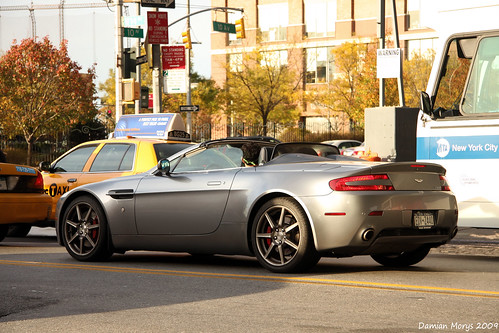 I was on the phone with my mother (still up in the Bronx) last week when she asked about what I hoped to be writing about once the site was back up. I told her about the recent twists and turns involving Uber. Then she said, “By the way, Lopez said hello.” I had to smile.
I was on the phone with my mother (still up in the Bronx) last week when she asked about what I hoped to be writing about once the site was back up. I told her about the recent twists and turns involving Uber. Then she said, “By the way, Lopez said hello.” I had to smile.
She used a livery service (normally for the ride home to the edge of the Fordham Heights/University Heights neighborhoods) for the better part of 15 years while she worked at both Harlem Hospital and Columbia-Presbyterian after pulling twelve hour shifts as a registered nurse in their NICUs. It didn’t hurt that one of the dispatchers was located only blocks from us. The vast majority of the time, Lopez was the one who picked her up. He’d apparently asked how I was doing after picking up my mother and brother from a trip out on Fordham Road. The service’s number is one that still lives in my cell phone; it’s almost a necessity as a Bronx native. Why? Yellow cabs generally didn’t “do” the outer boroughs “back in the day” and they weren’t allowed to do pre-arranged rides.
I smirk with envy as the “Boro taxis” are now available for the Bronx, Brooklyn, Queens, Staten Island, and most of the northern portions of Manhattan. I grew up seeing folks hailing taxis on television and I’d laugh if it was somewhere known to be impossible to get one (generally anything north of 96th Street). Livery cars gave us one more option to consider when getting around in New York City – especially when it came to getting home late at night when subway and bus (this one’s just the Bronx’s routes) arrivals at stations are more spaced out and the throngs of straphangers are scattered. They weren’t necessarily all equal either. So I was led to laugh some more at folks who kept pointing to NYC as I remembered just how crazy the situation was and continues to be in the city. I remember the need for enterprising individuals to set up solutions in a broken system.
I look at Uber, Lyft, Sidecar, and others like them as simply replacing in-car CB radios accepted as a staple of car service with a new tool. It’s tougher to rob an Uber driver if they don’t have cash to take. It’s tougher for a driver to say they don’t know where you’re going (but they don’t want to listen to you tell them how to get there) when there’s GPS available. It’s tough to argue with a user rating on either side of the equation. The service in Birmingham, however, could be seen as a business opportunity for drivers but an extra for many given the region’s low median household income levels.
One thing I learned long ago was New Yorkers are spoiled in terms of choice. Taxis and liveries work because we had other methods of getting around available for consideration. Something I’ve noticed here is the need for a car often outweighs the want of a car in Birmingham. We’re getting pretty excited for a new service that works best when augmented by other services desperately needed throughout the city and the region.
As much as many believe #BirminghamNeedsUber, I’d argue what the Magic City needs more than anything else is choices. Some of those choices are on the way, though they’d probably appreciate the same level of enthusiasm Uber has received in recent weeks. Why aren’t we seeing #BirminghamNeedsTransit or #BirminghamNeedsChoices or #BirminghamNeedsBikes used with equal excitement? I’m pretty sure Ann August would appreciate a community supporting her efforts to improve our transit authority, the BJCTA. Those efforts would undoubtedly improve opportunities for potential Uber drivers to get fares. While bike sharing may not provide the same potential, the Birmingham Bike share initiative needs some cheerleaders too.
I’ve done my best to avoid using ride-sharing when discussing Uber and other car service apps (though I slipped when posting last week). Mike Smith’s piece on Tuesday afternoon about CommuteSmart and the significance of that term does a great job explaining why it may not be the best one to use long-term as we continue to tackle the issue. It’s worth noting again that other cities are moving forward with similar legislation, with eerily similar hashtags to those being used here deployed – for instance, meet #NOLAneedsUber.
Changes need to be made as this city starts to move at a pace few are ready for, though perhaps it needs to think hard about where those efforts need to be focused first.
André Natta is the stationmaster for bhamterminal.com.
Photo: New York City. Damion Morys/Flickr.






